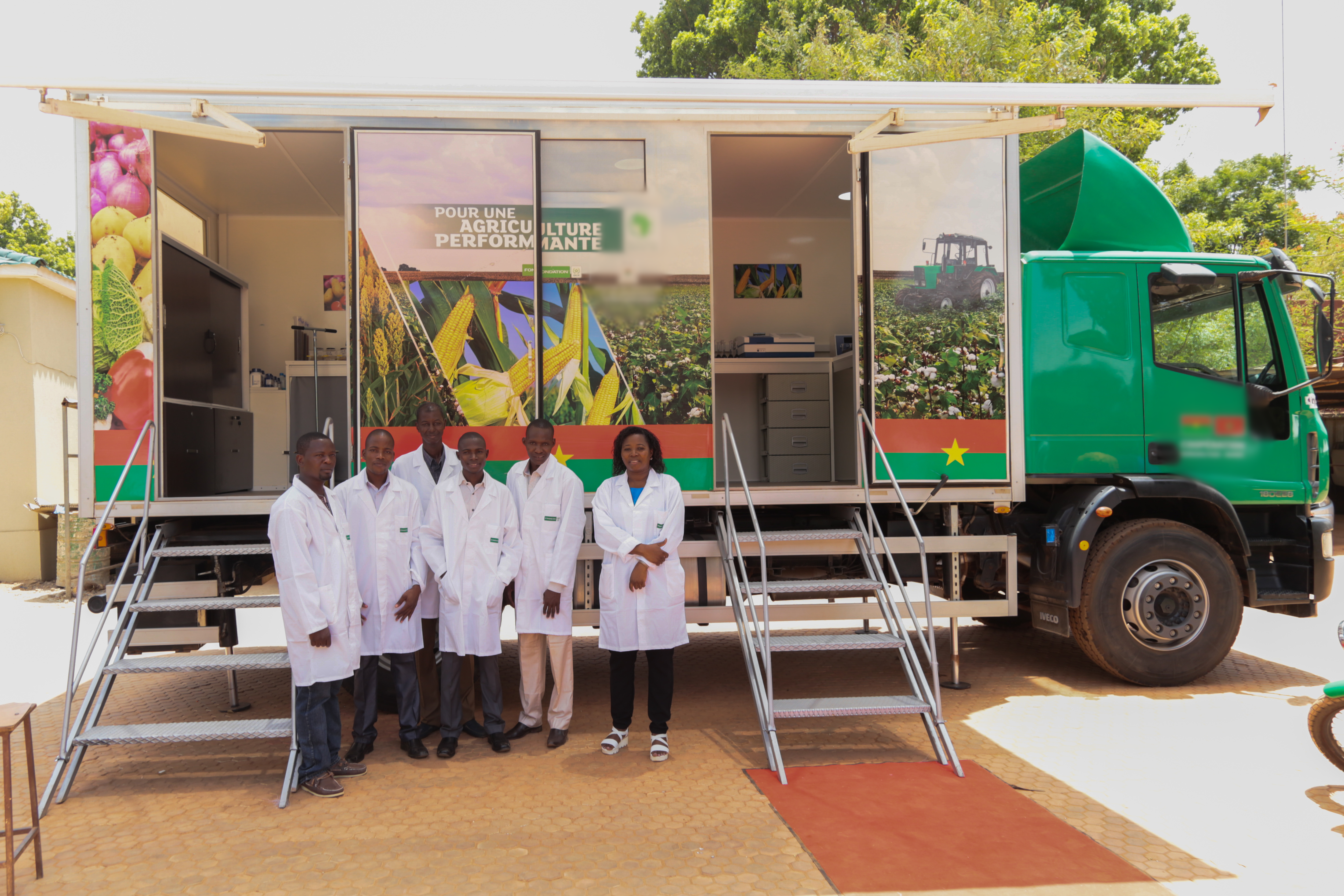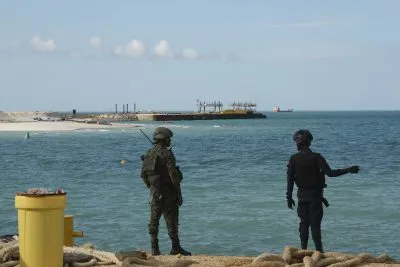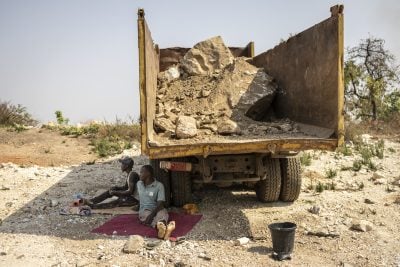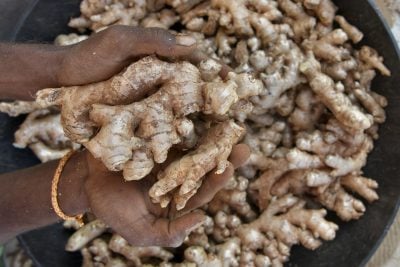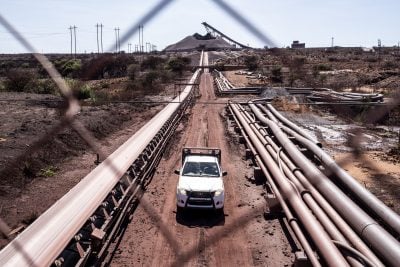This article was produced with the support of OCP
In the midst of the globally unprecedented Covid-19 pandemic and the lockdown of populations all over the world, the OCP Foundation, dedicated to developing African agriculture, is working to ensure the continuity of projects for its partners in sub-Saharan Africa. The OCP Foundation is committed to supporting partners in the areas of soil mapping for sustainable agricultural development in response to the food security challenges of our continent.
With this in mind, the OCP Foundation and Mohammed VI Polytechnic University (UM6P) have set up a platform for scientific debate, enabling African researchers and OCP Group partners to communicate on the progress of both jointly and locally run soil-mapping projects.
The programme allows various participants within the platform to share their respective experiences and best practices in the subject matter (e.g. sampling, laboratory analysis), and provides continuity of training on soil testing and nutrient management, geographic information systems, and quality control of fertilisers.
Launched in May 2020, this platform, named “Restore Africa Soils” benefits from the support and expertise of the Tekalign Mamo Center for Soil and Fertilizer Research in Africa (CESFRA), as well as UM6P’s leading laboratory for soil and fertiliser research. It will provide real opportunities for knowledge sharing and the exchange of best practices in the field among African countries.
First virtual meeting reports on fertility mapping in Togo
The first virtual meeting held, on 8 October and organised by the OCP Foundation, focused on the theme of “Fertility Mapping Projects – the case of Togo”. The meeting was an opportunity for the Togolese Agricultural Research Institute (ITRA) to share its experience of conducting a soil fertility-mapping project in full autonomy.
At this first webinar, the ITRA team was able to present their achievements to date in terms of building capacities, operational organisation and to review the progress of the mapping project. This work has, at the time of reporting, covered almost 1,200,000 hectares of Togo’s arable land.
The meeting was also an opportunity to run a demonstration on the digital interactive platform developed in partnership with UM6P, Fertitogo.tg, showing all the benefits of online tools for information, advice and decision-making to support and re-introduce smallholder farmers to sustainable agricultural practices.
In addition to OCP Group entities (OCP Foundation, UM6P and OCP Africa), the webinar was also attended by national and international institutional partners, including the FAO (Food and Agriculture Organisation), ICARDA (International Center for Agricultural Research in Dry Areas), and the AAA (Adaption of African Agriculture) Initiative Foundation.
The speakers highlighted the role of the OCP Foundation and UM6P in supporting the project’s implementation strategy and emphasised that a better understanding of the soil parameters in the country would fulfil the need to improve soil fertility, thereby increasing food and nutrition security.
Second meeting focuses on progress in Burkina Faso
A second meeting was held on 3 December, 2020 and focused on the experience of Burkina Faso in the field of soil fertility mapping. Once again, participants had the opportunity to share their expertise but also to share the challenges experienced while implementing this initiative.
This second webinar was launched by the Minister of Agriculture and Hydro-agricultural Management of the country, Salifou Ouedraogo. During his intervention, the minister highlighted the quality of this important work being jointly addressed by the OCP Foundation and the Bureau National des Sols (Bunasols) to alleviate food security challenges in Burkina Faso.
Thanks to its various activities across Africa, the OCP Foundation is promoting the development of strategic tools to support decision-making in agricultural policies.
As part of the soil fertility mapping project, the OCP Foundation provides several types of support and assistance to its partners. These involve, most notably, building capacities, the upgrade of local and national soil laboratories, and assessing soil fertility.
The OCP Foundation also supports African farmers through the dissemination of best agricultural practices. At the time of writing, there are almost 3.5m hectares included in the soil-mapping project in sub-Saharan Africa, over 220 trained technicians, and 17 fixed and mobile laboratories have been established and upgraded, all with the aim of fostering a sustainable and resilient agriculture in Africa.
About the OCP Foundation
Recognised to be of public utility, The OCP Foundation is a Moroccan non-profit organisation committed to sustainable human development in Morocco and many other southern countries. Through an integrated approach built on social innovation, the OCP Foundation strives to contribute to inclusive socio-economic progress, skills development and knowledge dissemination.
The OCP Foundation uses its expertise and network of partners to co-build sustainable and impactful solutions that meet the priority needs of the communities it serves. Furthermore, the Foundation adopts an agile action model based on collective intelligence and operates in different fields such as Education, and Research and Development, among others.
The OCP Foundation implements several projects and promotes innovative approaches in partnership with Moroccan institutions and other national and international organisations to stimulate and sustain the creation of shared value.
Through its promotion of a knowledge ecosystem, The OCP Foundation is also proud to support the Mohammed VI Polytechnic University, the Lycée d’Excellence de Benguerir , and the Mascir Foundation.
For more information, visit: www.ocpfoundation.org
About Mohammed VI Polytechnic University (UM6P)
The Mohammed VI Polytechnic University is an education, research, innovation and entrepreneurship hub that aspires to become a solid bridge of knowledge between Morocco, Africa and the world. Located in the “Mohammed VI Green City” in Benguerir, near Marrakech, UM6P applies a “learning by doing” approach and develops sound partnerships with worldwide class universities, to promote leadership and training in focused research areas. By contributing to the training of a new generation of researchers, entrepreneurs and leaders, UM6P is committed to positioning Morocco and Africa at the forefront of technology and human sciences.
 Sign in with Google
Sign in with Google 